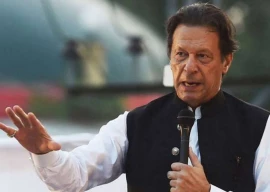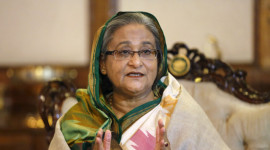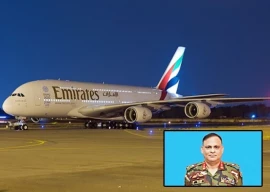
When Hamas rained missiles inside Israel on October 7 and took more than 200 Israelis hostage, the world knew Israel’s retaliation would be unprecedented. Even when Hamas is not engaged in direct skirmishes with Israel, an excuse is somehow racked up to strike Gaza. Every five years, Israel manages to put up a war theatre to eliminate another generation in Gaza. The pattern has been evident for over a decade.
The latest Hamas incursion was in retaliation to Israel’s repeated attack on the Al-Quds Mosque and to convey the message that peace for Palestine cannot be decided through negotiations between the US and Arab World heavyweights. Hamas, an acronym for Harakat al-Muqawima al-Islamiyya, is considered a rogue organisation and left out in any talks between the Arab States and Israel on Palestine.
A similar strategy was followed during the US-Afghanistan negotiation when the US had denied representation to the Taliban in the negotiation process. Only when the US changed its stance to include the Taliban did the peace talks start taking shape.
However, unlike Hamas, the Taliban were not designated as a terrorist organisation by the United Nations, even though the US treatment of the Taliban was as rough as it could be with terrorists. Neither is Hamas as organised as the Taliban, but the fact that Hamas has been at the centre stage of the Israel-Palestine conflict, denying its presence as a stakeholder on the pretext that it uses force (read terrorism) against Israel to get Palestinians their right to a nation-state is not a realistic assessment of the situation on the ground. If Hamas engages in violence, it is labelled as terrorism against Israel. However, when Israel uses brutal and disproportionate force against Hamas and the people of Gaza, it is labelled as the right to self-defence.
The irony is that since 9/11, the US-initiated war on terrorism has further emboldened terrorists and has made terrorism a justification to create more violence the world over. Some countries, such as India, have used terrorism to portray the struggle for an independent Kashmir as a militant struggle to dismantle India. The reason why India stands shoulder to shoulder with Israel against Hamas, having no qualms on the killings of innocent children, women and men in Gaza, is that it legitimises India’s maltreatment of the Kashmiris, India’s manhandling of Muslims all over the country and its belligerent relations with Pakistan.
The catchword is terrorism, which India applies selectively to camouflage its Hindutva agenda and the human rights violations of Muslims in Kashmir and elsewhere in India.
Israel’s illegal occupation of Palestine, the subsequent expansion into the West Bank, and India’s denial of the right to self-determination to the Kashmiris were the fuel that ignited militancy in the Middle East and South Asia. The Afghan debacle during the Cold War and post-9/11 exacerbated the situation. Any unnatural settlement of both issues, which means not involving the main stakeholders in peace negotiation, may remove the symptom but not the cause of the problem. Despite India’s forced erosion of Kashmiris’ right to self-determination by revoking Article 370 from the Indian Constitution, the region remains a flashpoint. The same applies to Palestine.
The Indian government has repeatedly sent messages of solidarity to Israeli Prime Minister Benjamin Netanyahu while he ordered the bombing of hospitals and refugee camps and denied humanitarian aid to the people stranded in Gaza — a human jail locked from all sides of its borders. The other day, the minister of defence of Israel, categorically said that even if Hamas releases all the hostages, Israel will not allow fuel to Gaza.
India, for the last few decades, has aligned its interest with the West-driven modernisation agenda for which it has eagerly replaced its many cultural values with those popular in the West, such as legitimising same-sex marriages, giving tacit approval to live-in relations as a way of life and becoming selective in condemning human rights violation depending on the criticism’s effect on investors’ behaviour.
With Israel, India’s strong bond also stems from economic considerations. Some of India’s regional financial partners, such as Egypt and the United Arab Emirates, have formed relations with Israel, while another, Saudi Arabia, had almost normalised ties with Israel before the Israel-Hamas war began. On the other hand, India’s relations with Iran and Russia depend on US sanctions. India wants to put its eggs in a safe basket, and it does not matter whether it reeks of a rotten agenda or is biased against fundamental human values.
With no economic interests in Palestine, the violation of human rights and international humanitarian laws in Gaza does not bother India. Humiliatingly enough, India’s social media made viral content on the killing of Gazan children and the bombing of hospitals and rehabilitation centres. Indian actress Kangna Ranaut, a BJP supporter, released her pictures on social media of her meeting with the Israeli Ambassador to India to express solidarity.
It is time for the international community to wake up and see the issues of Palestine and Kashmir from the proper perspective. Indeed, not a single person should die in a terror-related activity. That includes everyone: the Muslims living in India, a Muslim from Gaza or an Israeli in an unjust war in Palestine.
Published in The Express Tribune, October 26th, 2023.
Like Opinion & Editorial on Facebook, follow @ETOpEd on Twitter to receive all updates on all our daily pieces.











1723006281-0/BeFunky-collage]__-(9)1723006281-0-270x192.webp)


COMMENTS
Comments are moderated and generally will be posted if they are on-topic and not abusive.
For more information, please see our Comments FAQ